Syntopical
Reading - 500 Book List |
Set
One of Ten
Return to Index |
| I
have been maintaining a list of 500 books ever since
1975 when I first delievered my ReBuilding the
Future course
in Kansas city. The intented use of these books is
based on Mortimor Adler’s concept of syntopical
reading as described
in How
To Read a Book, one of the books
in Set Two of this listing. |
| The
list has evolved over the years however its intent
has remained the same: to constitute the minimum reading
that provides a comprehensive overview of the bodies
of knowledge necessary for
living well in today’s and the near future
world. This list is therefore tied closely to the Curriculum
For the 21st Century [link] and
they can be used as a general introduction to the
many bodies of knowledge that make up this curriculum. |
| I
am updating the list now (starting October 2003)
for several reasons: first, in preparation of offering
the course
again,
a quarter
of a century later, to look at - as we did then -
the challenges of the next quarter century
[link];
to document my own study as I near the end of this
cycle of autobiographical writing [link];
third, to formulate a core library for the
many environments we now have under development [link] [link];
and fourth,
to provide a direct pathway to those thinkers and
their
work
whom
I believe
we
should
be paying
closer attention to as we face what is before us. |
| Warning,
this is a syntopical conversation. Not all
these authors agree with one another nor do they
promote
even a generally singular point of view. The purpose
here is not to prove something or to promote something
- it is to think about a number of intertwined, complex
issues
facing
humanity;
issues we have to solve if we are to survive and
remain human. I do not agree with everything written
in these books; however, I have found these authors
challenging, engaging, informative and sometimes
pleasing. I have found their work useful. |
| Why
did I use david Brin’s book for the masthead
of this first Set? Because he treats one of the seminal
issues of our
time which
is the tug and pull between the ubiquity and use
of information and privacy. He does it in an uncommonly
comprehensive and evenhanded way and with the clear
intent of facilitating an intelligent dialog on this
subject.
This is rare in our world of spin, distortion and
propaganda. As such, David demonstrates the spirit
of my web site [link] and
the intent of this book list. |
| I
have read everyone of these books, some many times,
and used them in my life and work. This is not some
abstract
list.
Each of these books is included because they offer
multiple levels of information and insight about
more than one subject. They tell a story. They tell
our story and, in them, there is a seed - promise
of a future. When I read, I emerge myself in the
material and the viewpoint of the author. For awhile,
I become a “true believer.” After I have absorbed
this view of the world from the inside, I then employ
critical thinking to the extent that it seems necessary.
In the
first reading, I ask myself: “if
this is true, what are the implications?” I am a
designer and I take on information from the viewpoint
of how it makes me more able to design and build
useful systems and artifacts [link]. |
| These
books are not the last word on their subject nor
are they necessarily the most recent and up to
date on their subject. Sometimes the first take on
a subject has a life that later work does not even
if the more mature reflection is the more accurate.
Sometimes a work is provocative and even if questionable
in some respects still serves best the purpose of
stimulating thought. At any extent they are the ones
that informed my thinking at various moments
of my
life. And, of course, being part of a list of only
500 means that they are not the only ones
that have - they constitute only a fraction of my
reading.
I have built, lost, rebuilt and lost again many libraries
in a lifetime of migrations. They are, however, survivors
- they
are the ones I choose
to
remember
in regards
this
task
of
re-conceptualizing
what the future might be. These books are the ones
that surround my workspace - they are only a few
paces away from my desks. The list has changed over
the
years and it will continue to
change - as I do; as new ideas emerge; as the challenges
we face change; as Rebuilding the Future changes. |
| The
reading list is divided into 10 sets of 50 books.
Each set, alone, makes an interesting reading
assignment, synoptically. While
each of the these books deserve many hours of careful
attention, any one can be be
grasped in about one hour using the methods that
Mortimer Adler recommends in How To Read A Book.
This means that each set can be easily absorbed in
a month and the entire list within a year. If the
past is a guide, I will replace about 10 to 15 percent
of these books with new ones which, of course, I
will have to read. I will have to review the entire
lot. So, remaking this list will take me several
months. This follows my practice of never recommending
reading to someone unless I review it at the time
- the “me” who read it before is not the me who is
making the recommendation today [link]. |
| It
is far better to read these books synoptically than
as individual works - at least in the beginning.
It is the dialog between the authors and their subjects
- and, of course, with you, that makes
the experience worth doing. There are techniques
for
doing this
with others that we use in the ReBuilding the
Future Course, in
workshops and DesignShops that can easily be done
in the office
or home [link].
These methods greatly expand the quality of the experience
and ground the learning process by connecting the
content to issues of immediate interest and the ideas
that are important in your immediate community. |
| Beyond
this first introduction and reading, however, it
is my hope that many of the books will become your
long
term
companions
and a constant source of simulation and self-challenge
- as they have mine. And, I hope that they lead you
other materials that prompt you to make up your own
set of intellectual companions. |
| Just
as these books are best read together, active reading
on your part is a requirement as is the practice
of keeping a journal. This discipline facilitates
your engagement with the authors in a mutual journey
of discovery. It is the discovery that is
important not the static “knowledge” within
the pages. Books are social artifacts; they are seeds
of thought;
they are a gift from one to the future; they carry
within far more than those who created them can ever
know. A book can sit dormant on a shelf for decades
then, one evening, spark a life into action. Whatever
our failures of the moment, it is our collective
knowledge that makes it possible for fresh minds
to rethink, reinvent and recreate our reality. We
have the ability to make life a quest [link];
the ability to change our reality almost at will.
We
seem, today, to be drifting towards a future that
few want. Yet, we have the capability to design,
heuristically, a new economy/ecology/society. These
500 books just scratch the surface of the body of
knowledge collected by humankind. Reading them is
not a passive exercise in bookish contemplation -
it is a call to action [link: a rate of change weekend]. |
|
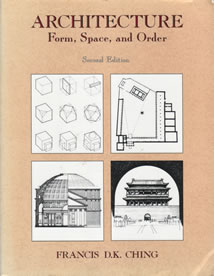 |
| The
basic mechanics of architecture are demonstrated
in this book using examples from several
thousand years of built work. A basic
primer of architecture beautifully
drawn by hand. The common
graphic language of the book displays
the world’s architecture as a continuum. |
|
|
 |
| The
Art of Memory describes the many techniques
that humanity has employed to remember.
These are alien to our world of instant
information and the Internet - I wonder.
Have we lost something essential to our
cognitive development? What if the old
ways, born of necessity, were combined
with the new augmentation tools? Will
we let technology shape our mental processes
without thought? |
|
|
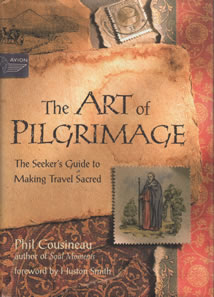 |
| Like
many aspects of modern life, travel has
become a commodity. It used to be a quest,
a necessary component of education and
an art. We must return to pilgrimage
as an essential aspect of the whole life. |
|
|
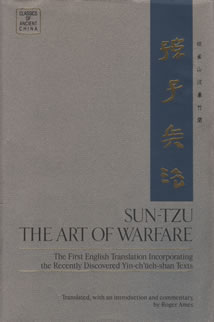 |
| This
book is too often misquoted. It could
be titled the art of peace. It is one
of the great works on strategy in general
and can be regarded as providing wise
council for a great variety of situations. |
|
|
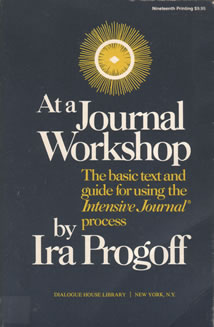 |
| The
classic guide to the practice of keeping
a personal journal - a critical tool
and practice in the development of the
self-aware life [link].
It is interesting to think of this in
relationship to Jaynes [link] theory
of the origin of consciousness. |
|
|
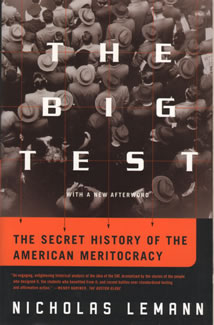 |
| The
story of a social experiment of far reaching
consequences and unexpected outcomes.
This is an example of a deliberate social
change that did “bite back” [link]. |
|
|
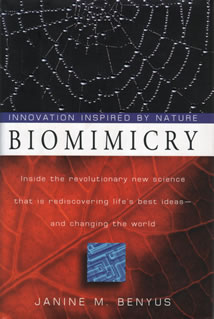 |
| How
does Nature solve the problem? Nature
does some amazing materials engineering
with strengths far in excess of human
efforts - and does it at
room temperature. What if nature’s
performance and means became the standards
of human
engineering? What might we achieve? |
|
|
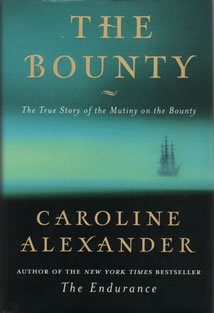 |
| We
all know that Captain Bligh was the bad
guy. It turns out that there was
some revisionist history practiced to
project certain family’s reputations.
Bligh, who schooled under James Cook,
was in fact a skillful and liberal commander.
What is it we really know about the
people we read about? |
|
|
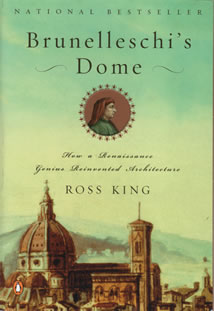 |
| The
world’s largest masonry dome was
erected by the genius of one man and
the perseverance
of a city that stayed the course through
war, famine, plague and economic change.
This is the story of invention, social
process and the creation of an unique
work. Can we match this performance today? |
|
|
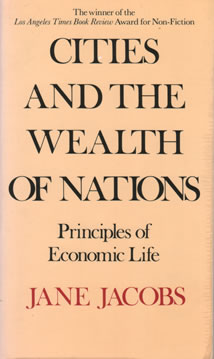 |
| Jacobs
argues that cites are the fountainhead
of wealth creation. |
|
|
 |
| The
great cities of the past flowered and
then fell victim to the same excesses
- we seem to be following the same patterns
today. The story of the city is the story
of civilization, and if present trends
continue, the future history of the planet.
Politics, economics, culture, art. technology
and architecture cannot be divorced. |
|
|
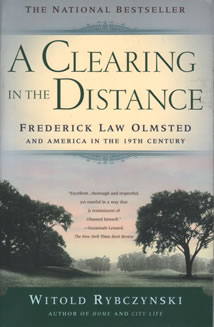 |
| Olmsted
was a public man in the sense we have
few, if any, today. His was an experience
that ranged across half of the 19th Century
into the 20th. His practice existed into
the 1950s. |
|
|
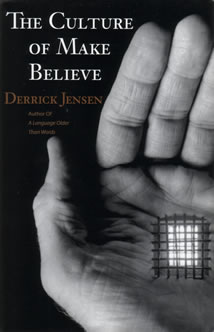 |
| This
book is upsetting and it may upset you
in a variety of ways - I hope it does.
It cuts to the core of what makes up
our modern society. This is an honest
book that take honest reading - both
are rare. We have to face the charges
of this book and we have to redeem our
human record - else humanity, as we like
to think of it, is lost. |
|
|
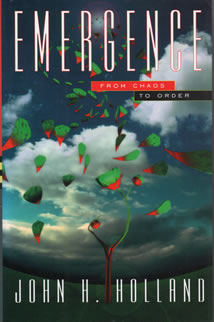 |
| Understanding
emergent phenomena is the task before
us. Our challenges are systemic and complex
- they do not succumb to simple linier
thinking and action based on force alone. |
|
|
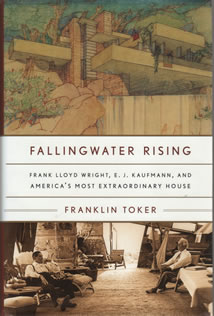 |
| It
takes an unusual set of circumstances
to give rise to a building like Falligwater.
A great architect, unusually perceptive
clients and a particular social circumstance. |
|
|
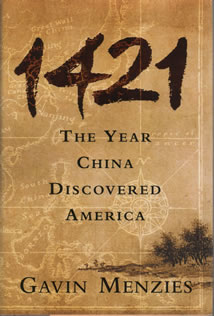 |
| The
story of one of the great expeditions
of all time. China systematically mapped
the world two generations before Columbus
and then turned its back on its own achievement.
What would history have been if they
had not? What does this reveal about
the history we have been told? |
|
|
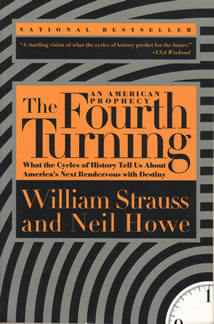 |
| I
do not know if the theory of this book
will hold up. And, the system presented
seems complex to me. However, it
makes a compelling read and presents
a lurking question: what if this pattern
was to repeat itself one more time? Are
there large cycles that impact us, as
a cilvilization? What what are they?
How do we respond? |
|
|
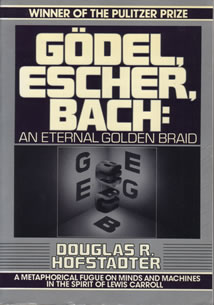 |
| I
think that something must be right in
a society where a book like this can
win the Pulitzer. Mathematics, art and
music are explored, in the works of three
men, to sense out the nature of thought
and mind. This book is an intellectual
feast and tour de force. The play of
mind to create useful insight. |
|
|
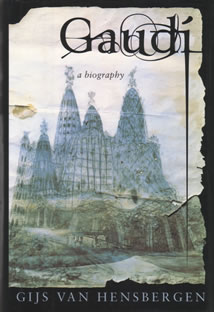 |
| The
story of a great architect. |
|
|
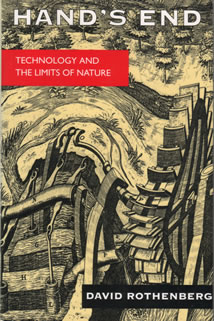 |
| I
first read this book in December 2000
after my first return to Taliesin [link] in
42 years just prior to my first
session as a World Economic Forum
Fellow
[link].
Rothenberg’s book was the intellectual
meat between
the two pieces of bread.
He gets at the root
of technology and our relationship to
it. |
|
|
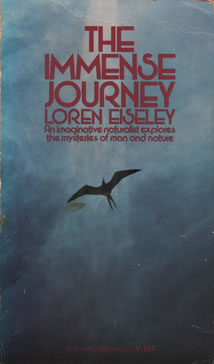 |
| Eiseley
brings poetry to science and science
to poetry - all the while asking provocative
questions. Questions that make you think
- not questions that can ever be answered.
This book puts the human experience into
perspective - a perspective much needed
in this world of the immediate
and short term gratification. |
|
|
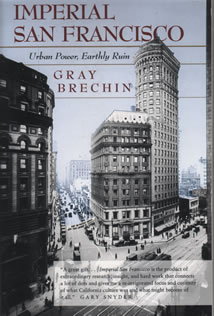 |
| Cities
are great centers of learning and creativity.
They are generators of social wealth.
They also draw on the resources of the
countryside
around them - human and ecological. They
emerge in time and express this time
by their unique social character and
make up. |
|
|
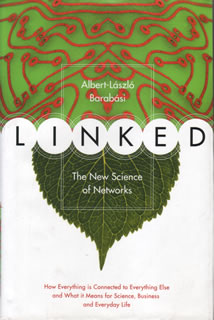 |
| Understanding
the dynamics of networks may be the single
most important social survival skill
for individuals and organizations in
the immediate future. Network architecture
can be found in the human brain, in social
groups, in organizations and markets.
These are all recursion levels of what
is essentially the sam phenomena. |
|
|
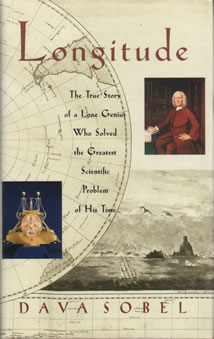 |
| This
is the story of invention and how society
treats innovators. |
|
|
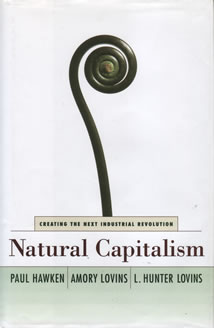 |
| Is
what passes for Capitalism today the
full measure of what it is and can be?
If so, this would be a sad thing. |
|
|
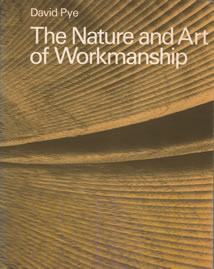 |
| Craft
is the basis of all useful human effort.
We have allowed modern tools to obscure
this fact. In removing craft from our
lives, we remove life from our work and
turn it into a sterile end for the sole
(or soulless) purpose of income. In doing
so, we destroy far more than we know. |
|
|
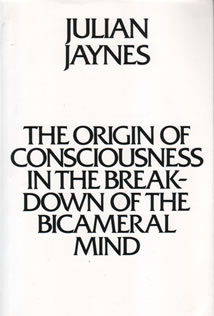 |
| How
did consciousness emerge? Here is one
radical model that has caused a great
deal of controversy and leads to many
questions - a few of the most interesting
of which are: what was individual experience
like before self-awareness? What role
does consciousness play in modern society
and to what degree do we actually have
it
today? |
|
|
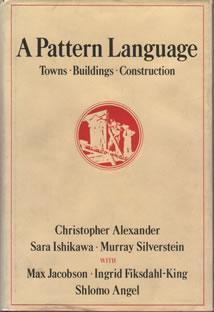 |
| A
book about the pattern language of architecture
that has broad applicability to any field. |
|
|
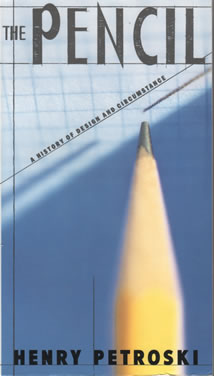 |
| What
is involved in making a pencil and how
has this tool impacted our technology
and social life? Petroski tells a compelling
story that goes back longer in history
than you might suppose. In doing so,
he reveals important relationships between,
discovery, invention, tooling, economics
and social feedback - even ecological
impacts. |
|
|
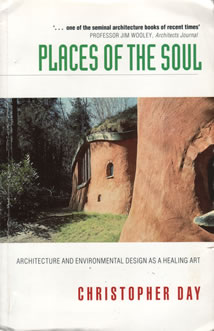 |
| Making
habitat is a primary act of living. Our
places of living and work have become
a commodity to be bought and sold not
an environment to live and prosper in.
Day outlines the elements that can make
this
different. |
|
|
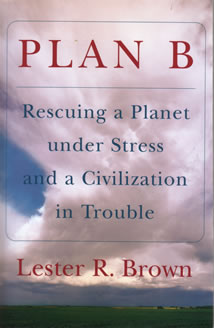 |
| We
have our head in the sand and, as a species,
we are committing suicide; Lester Brown
has an alternative. You may agree with
him or not about the best road forward
however the assessment of the situation
is less arguable. We already pay two
to three times for drinking water than
for fuel; when will it be a major cause
of war as oil is today? |
|
|
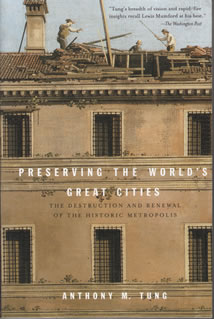 |
| We
are losing our architectural heritage
at an alarming rate. Not important? Tung
shows what we are losing, how much is
gone and the consequences of losing it.
It is interesting to note that the loss
of our architecture follows the same
pattern as the loss of our ecological
capital - in this, at least, the two
are integrated. |
|
|
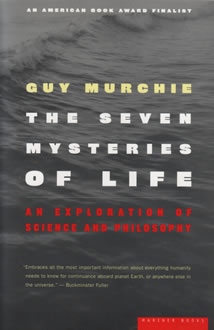 |
| If
life ever seems dull and you are in a
bad mood, there is always this book which
reintroduces its mystery and magic by
describing seven basic principles/processes
that make up life. Philosophy, science
and art combine to weave a story
that reintroduces us to that quality
which we process and too often take for
granted. |
|
|
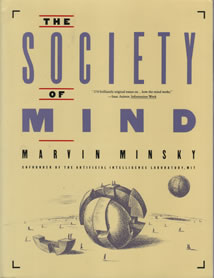 |
| In
describing agents and agency, Minski
proposes that mind is composed of many
simple functions that combine to make
complex results. This is a “bottoms up”
view of intelligence. I suspect his
ideas may scale and relate to how groups
and societies function not just individual
minds. If so, this is an exciting way
to look at the subject. |
|
|
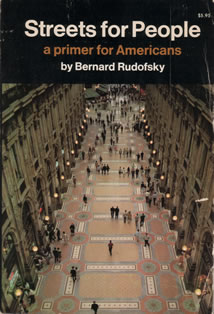 |
| For
10,000 years, streets were for people.
they were the great armature of the city
- a place for gathering and celebration
as well as transportation. The miss-application
of the automobile now leaves us with
cities that have lost their amenity and
landscape. Asphalt and noise stands
unchallenged. Must this be so? |
|
|
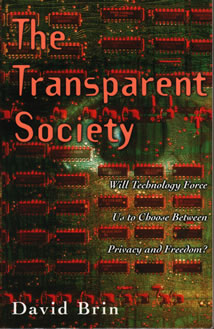 |
| If
we need anything, today, we need a transparent
society. Brin’s concept of “reciprocal
transparency”
may be key to solving the number of conflicts
caused by the clash of technology enabled
access, privacy and the uses of information.
His book frames an important debate that
we seem to be avoiding even as we makes the
decisions that will determine our experience
of autonomy and anonymity. |
|
|
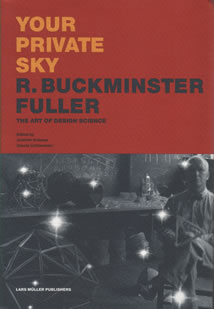 |
| Bucky
was one of the few, in the 20th Century,
that took the broad long view and also
acted to make practical inventions and
environments designed to directly improve
upon the conditions he articulated in
his speeches and writings. This book
is an excellent overview to Bucky the
philosopher and Bucky the engineer. |
|
|
| These
books span the entire time of human history. They
were written over a brief span of about 60 years
- 19xx to 20xx. Even with careful scholarship, the
view
of the past is from our present context. These books
constitute 50 snap shots of the human story, our
relationship to one
another
and
to
the
planet
of which we are a part. Each of the authors has a
distinct point of view and, and individually, something
important to say. As a set, however, an entirely
different level of dialog emerges. You will note
that, although many specific issues in these
books are being argued, the dialog that emerges
in this reading, synoptically, is remarkably
absent from our
currant
social discourse. The broad perspective offered by
these authors, together, is missing from the prevailing
point of view. We are
left, today in our social “dialog,” with
isolated skirmishes, spin - the competition of short
term
and narrow interests.
How do we navigate the future under these
circumstances? What
and who
are we as a species? How do we make habitat? How
do we create and maintain social fairness, equity,
individual prosperity and freedom
and planetary diversity, sustainability
and adequate future options? What is the
human enterprise? |
| Is
how we think of ourselves and describe ourselves,
and try to re-make ourselves, actually congruent
in regards how we, in reality, behave? Are
we fighting our own nature and deflecting ourselves
from our own path? Are the default assumptions of
our society serving us and
life on this planet? Are the choices what
we think they are? Are we getting a future by design
- or default? Is it the one you want? What
is knowledge and how is it gained? These are but
a few of the questions you may want to engage these
authors in. |
|
|
|
| Return
To RBTF Syntopical Index |
|
|
|
Matt
Taylor
Nashville
October 26, 2003
|
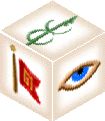
SolutionBox
voice of this document:
VISION • STRATEGY • EVALUATE
|
posted:
October 26, 2003
revised:
August 22, 2004
• 20031026.442661.mt • 20031028.387198.mt •
• 20031102.689201.mt • 20031104.548900.mt •
• 20040822.651211.mt •
(note:
this document is about 85% finished)
Copyright© Matt
Taylor 2003, 2004
|
|
|